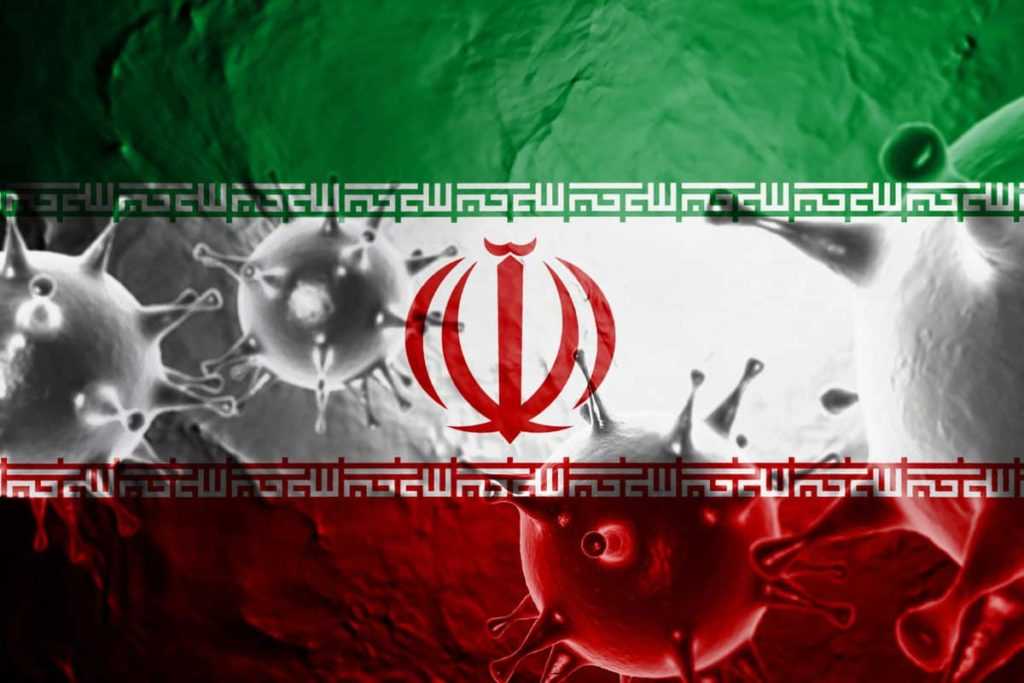Amidst the COVID-19 outbreak, Iran and China choose regime health at the expense of world health
Despite the spread of the dangerous coronavirus, Tehran and Beijing have chosen to manipulate the outbreak to strengthen their strategic partnership and prop up their regimes.

3D ILLUSTRATION VIRUS WITH Iran FLAG, CORONAVIRUS, Flu coronavirus floating, micro view, pandemic virus infection, asian flu.
Despite the spread of the dangerous coronavirus, Tehran and Beijing have chosen to manipulate the outbreak to strengthen their strategic partnership and prop up their regimes.
The coronavirus outbreak has revealed the extent of the Tehran-Beijing relationship. The two countries’ political, commercial and technological ties most likely facilitated the rapid spread of the virus.
When the coronavirus hit Iran in early February, regime leadership chose to sustain the status quo of its economy. By choosing to prioritize the interests of the regime, officials jeopardized the containment of the disease.
Iran remains the most impacted Middle Eastern country by this pandemic. As of this week, Tehran claims its current death toll is 853 and counting, while the number of infections have breeched 15,000. It is extremely likely these numbers have been underreported, however.
Iran’s deputy health minister, Iraj Haririchi, became the first regime official to die from the virus last month. Footage of Haririchi downplaying the outbreak while displaying obvious symptoms became viral overnight. It has also been reported that the country’s vice president for women and family affairs, a top official in emergency medical services, along with dozens of parliamentary members have also been infected or have ultimately died from this virus. More recently, former member of the Expediency Council and chief of staff to Ayatollah Khamenei, Seyyed Mohammad Mir Mohammad, was declared dead in early March.
The severity and early on-set of the infection rate among Iranian elites is indicative of the deep Beijing-Tehran relationship. However, the strategic partnership between these two totalitarian states is not new. Beijing has a history of providing infrastructural, technological and commercial support to the world’s leading state sponsor of terror.
During the Iran-Iraq war years, Beijing provided Iran with ballistic missiles as well as fighter jet and anti-ship missile technologies. On the economic front, Beijing has become Iran’s most significant trading partner and oil customer, making up for 50-70% of its oil exports. In addition to oil, China remains the top investor in the Iranian market. China’s leading telecommunications company, Huawei, has been accused of providing Iran with American equipment and intellectual property theft, and violating US sanctions. Just last year, Iran’s Foreign Minister Mohammad Javad Zarif promised an unprecedented $400 billion in investment in Iran’s economy. This promise was clearly motivated by China’s global ambition to sustain a foothold in the Middle East, as part of their larger One Belt One Road (BRI) global initiative.
The pervasive ties between these two states extends to their overlapping anti-American propaganda efforts. China and Iran have recently been flooding international media outlets with messages accusing the US of manufacturing the coronavirus pandemic as a bioweapon. This week Beijing launched a campaign urging the U.S. to lift sanctions on Iran to aid in the regime’s coronavirus relief efforts. China’s ministry of foreign affairs tweeted, “Continued sanctions on Iran was against humanitarianism and hampers Iran’s epidemic response & delivery of humanitarian aid by the UN and other organizations.” Given Tehran’s track record, it is likely that any economic assistance will be funneled to its military and nuclear program.
While the international arena grapples with the coronavirus outbreak, Tehran and Beijing will use the crisis to further their long-term agendas and prop up their dangerous regimes.
- America’s Supercarriers Are Back in Force in the Pacific - December 30, 2025
- Israel’s $2 Iron Beam Laser Could Disrupt Missile Warfare - December 23, 2025
- US Stands Up New Drone Strike Force in the Middle East - December 9, 2025
